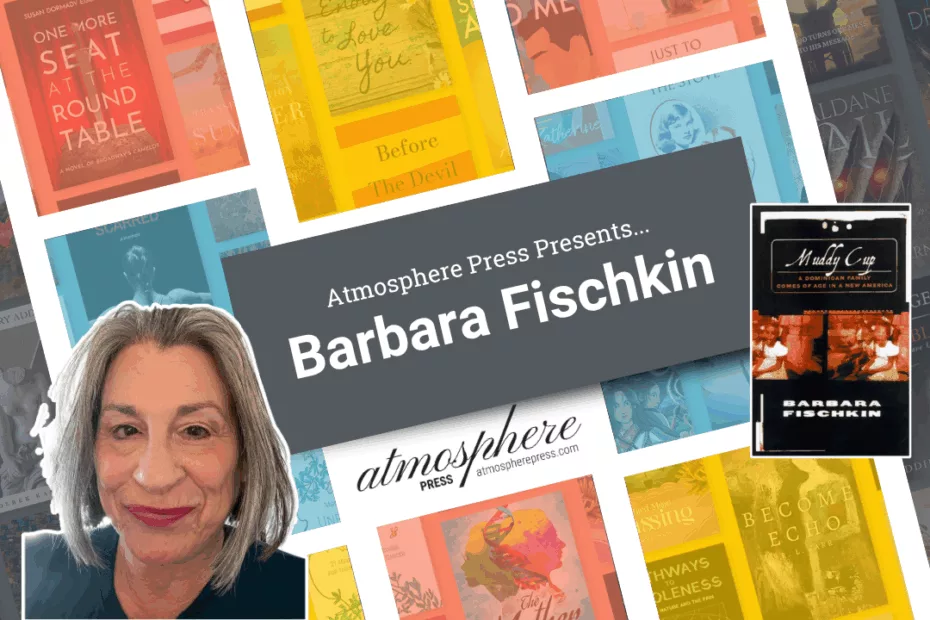An Interview with Barbara Fischkin

Barbara Fischkin is the author of three books of narrative nonfiction and fiction and is currently writing an autism-related historical novel (working title “The Digger Resistance“). The book spans the years 1900–present and takes place in Ukraine and other European and American locales. She holds a SUNY interdisciplinary Master of Liberal Studies Degree in “Autism Past and Present,” and has taught journalism at three universities. Her books include Muddy Cup: A Dominican Family Comes of Age in a New America—published by Scribner and considered a landmark work about Dominican immigration to the United States—and two satiric novels published by Bantam Dell at Random House: Exclusive and Confidential Sources. As an international journalist, Fischkin covered stories in Latin America, Asia, and Europe and wrote for major publications including Newsday, where she was on staff, the New Yorker, and the New York Times. She is currently posting chapters of a memoir on 3quarksdaily.
Who/what made you want to write? Was there a particular person, or particular writers/works/art forms that influenced you?
The first person who told me I was a writer was my father. Who listens to such advice from a parent? His view was confirmed when I was in college at New York’s public “The University at Albany.” William Kennedy, now a Pulitzer Prize-winning novelist (Ironweed), was my teacher in a class on what was then called the New Journalism (Tom Wolfe, Hunter Thompson, etc.). He read my first feature article out loud in class. I shook. It was a weird story about a former golf pro who had invented a profession for himself. He was a Truthologist. The world’s only Truthologist. He couldn’t really explain the profession. It had something to do with Isaac Newton. After reading my piece, Kennedy had many criticisms and I figured that as a writer I was a goner. After class he asked to speak to me. He said. “You are a writer.” That encouragement changed my life. Bill has mentored me many times throughout my career. My gratitude for this is boundless.
What other professions have you worked in? What’s something about you that your readers wouldn’t know?
I have never worked in a profession that did not involve writing. For many years I was a communications specialist, full- and part-time, for the City University of New York. (CUNY). I worked for three chancellors (who served at different times). Nevertheless, it was quite a balancing act and I am happy to speak about this. I have also taught journalism at three universities: New York University, Adelphi, and Hofstra.
Tell us the story of your book’s title. Was it easy to find, or did it take forever?
No. I knew right away what the title would be. “A Muddy Cup” is a poem by the late Irish poet laureate John Montague about his mother’s reluctance to be an immigrant in New York. (Line: “America was a Muddy Cup my mother refused to drink.”) One of the characters in Muddy Cup is a woman named Roselia Almonte who felt the same about leaving her homeland. But she did. Her own son, Mauricio Almonte, met John Montague and wrote his own series of poems about his mother. As a college student Mauricio won $300 for his poems-poems inspired by John Montague’s poems. Truly an international story.
What part of publishing your book made it feel real for the first time?
Mauricio’s sister, Elizabeth, read a verbal translation of the book to her parents, who did not speak English. For fact-checking. She told me: “It isn’t all nice but it is all true. Publish it!”
If your book had a soundtrack, what are some songs that would be on it?
Merengue. Merengue. Merengue. Any Merengue. Some Bachata too. Any Bachata.
What’s one thing you hope sticks with readers after they finish your book?
That all Americans—aside from Native Americans—can trace their roots to people who came from someplace else.
What was the most rewarding/meaningful part of publishing your book?
It is now. That people still read it for the first time and say it speaks to them about immigration.
Also: That many Dominicans still consider it a landmark work about their country.
What creative projects are you currently working on?
A historical novel and memoir. I am also pitching a television pilot about a kid with nonspeaking autism (I have a thirty-seven-year-old son with nonspeaking autism) and how he has the same adventures as any kid. I was a Cannes Film Festival table read semi-finalist in a competition sponsored by the International Screenwriters Association. Did not make it to Cannes this year. Maybe next year!
Are you a writer, too? Submit your manuscript to Atmosphere Press.

Atmosphere Press is a selective hybrid publisher founded in 2015 on the principles of Honesty, Transparency, Professionalism, Kindness, and Making Your Book Awesome. Our books have won dozens of awards and sold tens of thousands of copies. If you’re interested in learning more, or seeking publication for your own work, please explore the links below.
